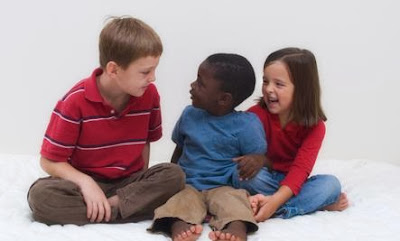True story:
Caucasian friend of mine, while watching his children play on the playground with a collection of children representing a plentitude of racial background says to an African American woman there with her young daughter, “It is really inspiring to see our children playing with seemingly no awareness about race or ethnicity.” The African American mother responds with a kindly, “That is nice for you. My daughter comes home and asks how we could wash the dark off of her skin.”
Not that we needed a new reason to talk about racial issues, but the recent killing of 17-year-old Trayvon Martin in Florida has brought the issue of race back into the forefront of the American dialogue. While the blogosphere and the televised news stream is rich with talk of racism and racial profiling, the talk between parents and children on this matter is basically nil – if you are Caucasian. While many African American parents routinely have “the talk” with their teenaged children (particularly their young sons) many, if not most, Caucasian parents of young and teenaged children believe that if you electively start talking with your children about race, you are creating a problem and disturbing your child’s innate “colorblindness.” Not so true. It has been shown that when we (and this goes for any parent) avoid talking about race, our children still think about and process issues of racial identity. And by not talking about it, we are sending the implied message that race is something that matters too much to actually discuss.
Recently, Anderson Cooper’s CNN program, 360, commissioned new research designed to look at the issue of how children view race. They found that many more white children interpreted a neutral picture of an interaction between two students of different races in a negative way. As reported in The New York Times, one of the researchers who created the study, Dr. Melanie Killen, believes the difference comes from those different approaches white and nonwhite parents have to talking with their kids about race. White parents, she said, believe children are socially colorblind. This is just not the case.
But if we were to begin the conversation, what should we actually say? Well, the Race Awareness Project is likely as good of a place as any to get the conversation started, with games, books, and even apps to help contextualize issues of race with young and teenaged children. But you may opt for a more direct approach, as in a conversation, which may be more illuminating (and shocking) than you had anticipated.
How do you discuss issues of race and skin color with your children? Do you find it a necessary topic to explore with your children, or something too unsettling to discuss? If you haven’t ventured into this territory, what is stopping you?

